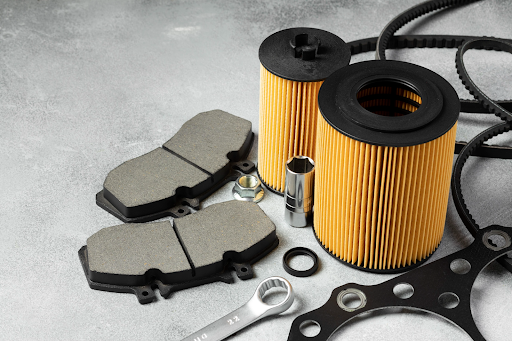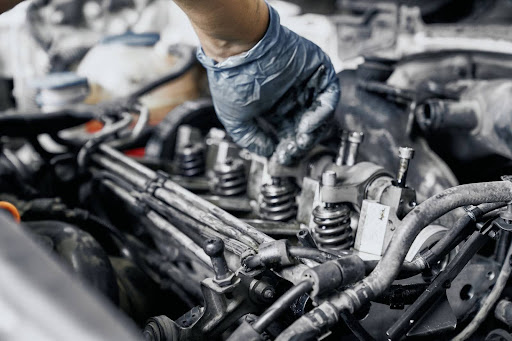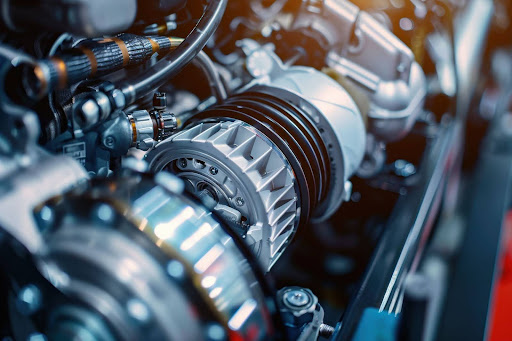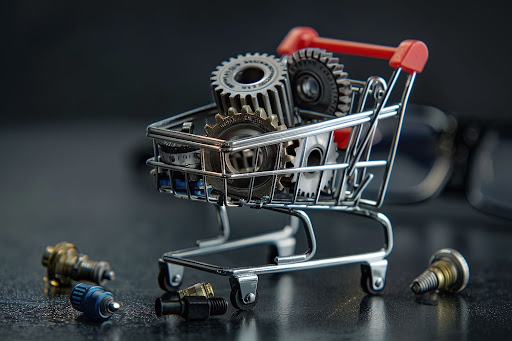Fuel filters are one of the most critical components of a commercial vehicle’s fuel system. They trap dirt, rust, and other particles, preventing them from entering the engine. When the filter becomes clogged, it restricts fuel flow, reduces engine performance, and increases the risk of breakdowns.
A blocked Tata fuel filter can significantly impact overall vehicle efficiency. Identifying early warning signs helps avoid costly repairs and unplanned downtime.
1. Drop in Engine Power During Acceleration
One of the first symptoms of a clogged fuel filter is reduced engine power, especially during acceleration.
Look out for:
- Slow response when pressing the accelerator
- Difficulty maintaining speed on inclines
- Sudden loss of power under heavy load
This occurs because the engine is not receiving sufficient fuel for proper combustion. A restricted filter prevents the system from building the necessary fuel pressure.
2. Difficulty Starting the Engine
If the fuel filter is completely blocked, starting the engine becomes difficult. The engine may crank but struggle to ignite.
Common symptoms:
- Longer-than-usual cranking times
- Frequent stalling immediately after ignition
- Rough idling post start-up
Clogging leads to uneven fuel delivery, which affects ignition and cold starts.
3. Frequent Engine Stalling During Operation
Stalling during normal driving is a major red flag and may be caused by inconsistent fuel supply.
Signs include:
- Engine cuts off randomly while idling
- Stalling when shifting gears or turning
- Short bursts of acceleration followed by sudden power loss
A clogged Tata fuel filter starves the engine, causing it to shut down unexpectedly posing safety risks and reducing uptime.
4. Unusual Noise from the Fuel Pump
When the fuel filter is blocked, the fuel pump has to work harder, often producing noticeable sounds.
Watch for:
- Whining or buzzing sounds from the fuel tank area
- Increased noise with heavier engine loads
- More frequent sounds during hot weather
These noises indicate strain on the pump. If ignored, it may lead to fuel pump failure, a more expensive issue to fix.
5. Drop in Mileage and Fuel Efficiency
A clogged fuel filter affects fuel atomisation and combustion, resulting in higher fuel consumption.
Symptoms of reduced efficiency:
- Frequent refuelling despite covering similar distances
- Engine consuming more fuel than usual
- Black smoke from the exhaust due to unburnt fuel
A clean Tata fuel filter ensures optimal fuel spray and better mileage, especially on long hauls and in stop-start traffic.
6. Engine Misfires or Hesitation
Inconsistent fuel flow can lead to misfiring or hesitation while driving.
You may notice:
- Intermittent jerks during cruising
- Uneven pull during gear shifts
- Delayed throttle response
These issues affect driving comfort and signal underlying fuel system trouble.
7. Strong Fuel Smell Around the Vehicle
A blocked filter may cause pressure buildup in the system, leading to leaks or vapour accumulation.
Be alert for:
- Unusual fuel smell near the engine bay
- Wet spots or leaks near the filter housing
- Headaches or dizziness due to fumes
This isn’t just a maintenance issue, it’s a safety concern, especially with fuel leaking near hot engine parts.
8. Visible Dirt or Discolouration in the Filter (If Inspected)
During servicing, a visual check of the filter can confirm its condition.
Signs to look for:
- Filter appears dark, blackened, or dirty
- Presence of sludge, rust, or water
- Cloudy or contaminated fuel in the housing
A visibly dirty filter confirms it’s time for replacement.
When to Replace the Fuel Filter
While symptoms are helpful, following a regular replacement schedule is the best practice especially in commercial vehicles that endure:
- Long operating hours
- Poor road and fuel quality
- Stop-start driving and frequent loads
- Exposure to dust, moisture, and heat
Even high-quality filters like the Tata fuel filter require timely replacement to maintain consistent fuel delivery and engine health.
How Fleet Operators Stay Ahead with Smart Maintenance
In commercial transport, downtime means lost revenue. Recognising early signs and maintaining a proactive approach helps avoid expensive breakdowns.
Best practices include:
- Listening to driver feedback
- Tracking fuel consumption trends
- Replacing filters at recommended intervals
- Inspecting the fuel system during every major service
Keeping Fleets Running Smooth and Steady
A well-maintained fuel system keeps vehicles running reliably and efficiently across diverse Indian routes. Regular filter checks, paired with quality components like the Tata fuel filter, minimise breakdowns and maximise fleet productivity.
That’s why many fleet managers trust Tata Genuine Parts India for supplying parts that meet the real-world demands of commercial transport without compromise.





